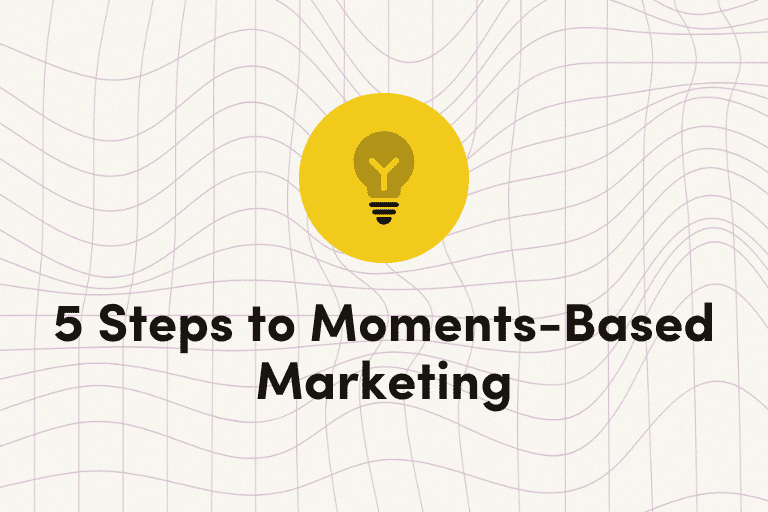What is Customer Engagement?
Customer engagement refers to, well, how often a customer engages with your brand. More specifically, it reflects a customer’s relationship with your brand and is measured in terms of their level of interaction with your brand’s channels and communications, focusing on metrics that might include clicks, opens, and pageviews. Developing customer engagement is important if you want to build trust and long-term loyalty in your brand.
To drive customer engagement, it’s important to set up uniquely personalized customer experiences that reach your customers through whatever marketing channels they prefer to use, a process known as cross-channel marketing.
We’ll take a look at some of the metrics you should use to measure customer engagement and how you can increase it through strategies such as cross-channel marketing.
How to Measure Customer Engagement
To track how successful your cross-channel marketing efforts are with your customer base, consider the following key performance indicators (KPIs):
- Clickthrough rates: Did the customer click on a link in the message?
- Conversion rates: Did the customer make a purchase or complete an offer?
- Customer lifetime value: How much revenue has the customer brought in since they first engaged with your brand?
- Net promoter score: How would they rate your product or service?
- Customer satisfaction score (CSAT): Are customers happy with the level of service received?
- Sentiment analysis: If customers are messaging your brand or writing reviews about your products, are they positive or negative in nature?
- Inactivity and churn rate: What percentage of customers are remaining inactive, and what percent are churning over a given period of time?
You may find other opportunities specific to your brand and business model to help you evaluate customer engagement, but looking at these metrics over time will help you understand your level of customer engagement both now and over time.
If your customer engagement levels aren’t where you’d like them to be, cross-channel marketing can help you optimize for maximum engagement.
Personalizing Your Marketing Content
Incorporating dynamic content is another way to optimize for customer engagement. Accenture found that 91% of customers are likely to shop with brands that provide personalized recommendations.
By segmenting your audience down to a personal level and incorporating products they’ve previously purchased or clicked on, you’ll provide tailored recommendations for future purchases. Dynamic content can also be used to prod action based on behavioral triggers, such as sending a cart abandonment sequence when a customer clicks away before completing a purchase.
You can even use dynamic content to generate custom promotions specifically for a customer, such as offering a discount on a product they’ve been viewing or a brand they’ve purchased items from in the past. This can help provide a unique experience that demonstrates you recognize their preferences.
By using cross-channel marketing to help you tailor your campaigns to each customer’s specific journey, you can ensure they’ll receive your content at the time and place that fits them best. This helps increase the likelihood that they’ll consume your content and respond positively to your offers.
Using Cross-Channel Marketing to Generate Customer Engagement
With cross-channel marketing, you can leverage your customer data to develop highly personalized messaging that you can use to reach your customers across all of the marketing channels they use, which might include email, SMS messaging, social media, push notifications, in-app messaging, and direct mail.
Using a cross-channel marketing solution like Iterable, you can develop templates for workflows that automatically optimize based on your customers’ behavior. For example, if you send a customer a promotional offer for a sale via email and they don’t open it after a certain timeframe, that lack of response will trigger an SMS message. This helps promote engagement by giving customers multiple opportunities to see your content, without bombarding them with identical messaging across all of the channels at once.
Your messaging sequences can automatically optimize on a customer-level basis, based on how the customer most often interacts with your brand. For example, if one customer only engages via your mobile app, you can prioritize in-app notifications as the primary channel for communicating with them. This helps to drive a better customer experience by empowering customers to communicate on the channels they prefer.
Benefits of Strong Customer Engagement
By optimizing your marketing campaigns to maximize customer engagement, you’ll be able to increase your marketing ROI in significant ways.
A study by Constellation Research found that companies that improve customer engagement have been able to boost cross-sell revenue by 22%, up-sell revenue by 38%, and order size by 5-85%.
By finding ways to interact directly with your customers across the marketing channels they prefer, and recommending products that they’re likely to respond to, you’ll be able to build trust and familiarity in your brand. That will result in higher revenue, long-term loyalty, and brand evangelism.
Customer engagement serves to demonstrate how much your customers care about your brand. By paying close attention to metrics that help you measure engagement, you’ll be able to predict each customer’s longevity and lifetime value. As you identify customers with low engagement, you can put new marketing strategies into place to optimize their brand interactions, helping to drive a stronger connection with your brand.
By using best-in-class marketing automation technology to track and optimize customer engagement on a personal level at every stage of the customer lifecycle, you’ll be able to improve your customer engagement at scale.






























